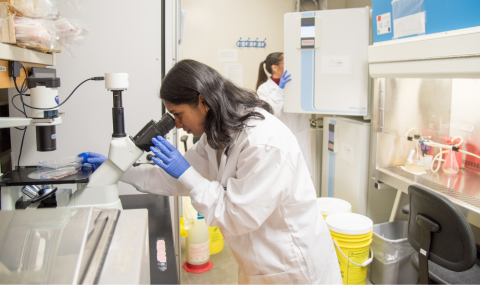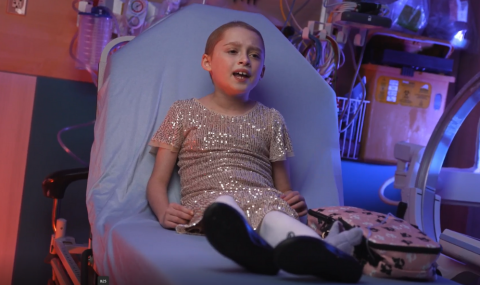Who to contact
Inpatient and outpatient mental health services are offered at LHSC. Please connect to the Mental Health Care Program for further information.
If you require further information regarding other mental health services, please follow the corresponding links:
- Psychological Services
- Regional Mental Health Care London
- Regional Mental Health Care St. Thomas
You may feel a wide range of changing emotions after giving birth. This is normal for most women. More than 80% of all new mothers feel sad or have "baby blues" after having a baby. The baby blues can start within a couple of days of birth and normally go away within two weeks without treatment.
These feelings will change with time. Love and support from your partner, friends, and family will help a great deal, so reach out to them. You also need to take good care of yourself, get plenty of rest, eat well, and talk about your feelings.
Postpartum Depression (PPD):
Postpartum Depression encompasses a broad range of emotions women may feel after the birth of a baby. Many new mothers may experience the “Baby Blues”. Up to 80% of moms, during the first few days or weeks, may express feelings of sadness, tearfulness, unwanted crying, sleeping problems, appetite disruptions, anxiety, and a feeling of general unhappiness.
The term Postpartum Depression (PPD) refers to unrelenting feelings of sadness, anxiety, and general unhappiness, lasting from 2-3 weeks after birth to a year later. PPD affects about 20% of new mothers. Some common signs of PPD include: loss of interest in usual activities, irritability, fatigue, sleeplessness, appetite change, inability to cope, panic attacks, and anxiety.
Postpartum Psychosis is the most severe form of the three conditions. This is a rare condition affecting 1-2% of women and is associated with a state of being ‘out of touch’ with reality. This condition is considered a MEDICAL EMERGENCY and treatment involving hospitalization and medication is necessary.
A woman experiencing these signs may harm herself or her baby.
Signs a woman may be experiencing Postpartum Psychosis include: paranoia, delusions, hallucinations, confusion, anxiety, disorientation, and agitation.
Possible Causes for Postpartum Depression:
*The exact cause is unknown, however, there is a strong link to a history of depression.
- Lack of support from partner/family
- Premature baby
- Baby with medical difficulties
- A history of coping problems with grief or loss
- Financial concerns
- Any history of or current experience with emotional, physical, or sexual abuse
- Changing hormones
- Discomfort from the birthing experience
- Tiredness due to lack of sleep
- Frustration regarding lack of feeling an immediate emotional bond to the baby
How to Help Overcome Postpartum Depression:
First and foremost, it is important to tell someone about your feelings. Talking to a health care professional will help connect you to the resources and treatments you need. A public health nurse can provide you with support over the phone if needed by calling (519) 850-2280. Some new mothers find it helpful to join a support group:
Other Suggestions for Helping to Relieve PPD Include:
- Try to rest during the day (short naps count)
- Eat comforting foods
- Talk to a trusting, supportive person
- Ignore comments such as “Snap out of it!” or “You should be happy to have a baby”
- Spend time on yourself everyday
- Try to go for a walk
- Have a trusting friend/family member look after the baby occasionally
- Learn about PPD
- Understand it is okay to cry
- Do not blame yourself and do not take on everything on your own



